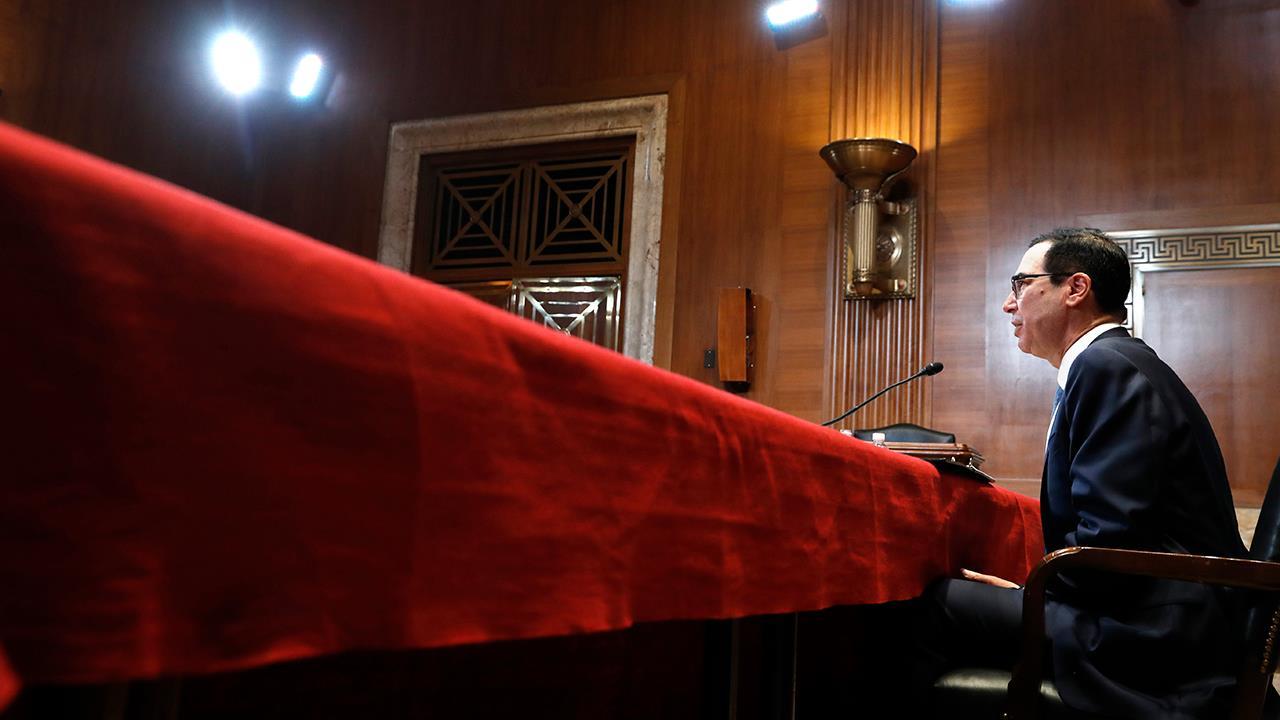Pelosi reportedly rejects latest White House debt limit offer over spending cuts
House Speaker Nancy Pelosi is rejecting the White House’s latest debt limit proposal, which demanded $150 billion in spending cuts, Bloomberg News reported on Friday.
Late Thursday, the Trump administration sent Democrats a budget agreement, requesting they choose an area to cut $150 billion in spending, out of an option of $574 million in saving options, to offset the costs of a two-year budget cap agreement, according to Bloomberg.
Officials told Bloomberg that the proposal is a starting point.
Negotiations between Trump administration officials and congressional leaders are expected to continue on Friday, as they hope to pen a deal in order to set up a House vote on it next week -- ahead of Congress’ impending August recess.
Treasury Secretary Steven Mnuchin said on Thursday during a CNBC interview that lawmakers were close to an agreement, and that he was confident the U.S. government is not at risk of defaulting on its debt.
“I think that everyone is in agreement that we won’t do anything that puts the U.S. government at risk in terms of our issue of defaulting,” he said during the interview. “I think that nobody wants a shutdown in any scenario.”
In the “most conservative” scenario, Mnuchin said it’s possible the federal government has an issue at the beginning of September before lawmakers are scheduled to return from their summer recess on Sept. 9. He previously warned House Speaker Nancy Pelosi that the government could run out of cash by early September if Congress didn’t raise the debt ceiling ahead of its August recess.
“That’s why I’ve encouraged them to raise the debt ceiling before they leave,” he said.
CLICK HERE TO GET THE FOX BUSINESS APP
The debt ceiling -- which is currently set at $20.46 trillion -- is the legal limit on the total amount of debt that the federal government can accrue; according to the Committee for a Responsible Federal Budget, it applies to both the $16.2 trillion held by the public, and the $5.9 trillion owed by the government.




















